Terri Sewell says Fiscal Year 2023 Omnibus Bill provides billions in federal funds for Alabama projects
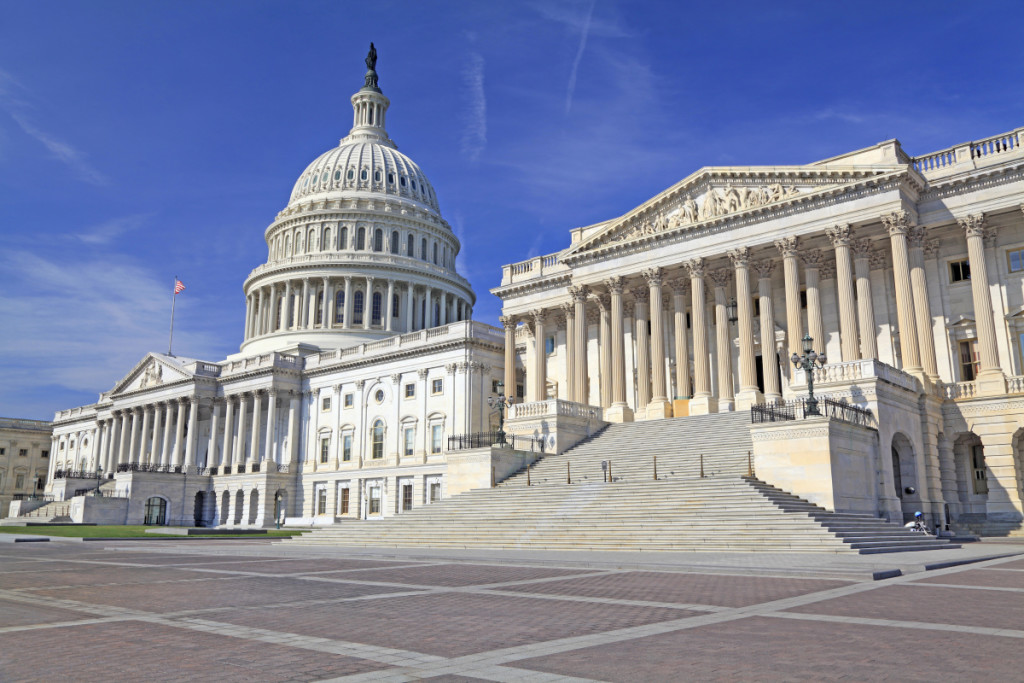
On Wednesday, Congresswoman Terri Sewell (D-AL07) celebrated the inclusion of billions in federal funding for the state of Alabama in the Fiscal Year 2023 omnibus funding bill, which passed the House and Senate last week. Sewell holds a senior leadership role in the Democratic leadership team in the outgoing Democratic leadership in the House. U.S. Sen. Richard Shelby was the lead Republican negotiator on the Omnibus in the Senate. This bill was most likely his last vote in Congress after 44 years of service to the State of Alabama. “I was thrilled to vote in favor of the FY23 funding bill because I know that it will be a game changer for the people of Alabama,” Rep. Sewell said in a press release. “I would also like to thank Senator Richard Shelby for his work to ensure that Alabama received a historic amount of funding during his last year as a United States Senator. His leadership, his pragmatic approach to governing, and his fierce advocacy for the people of Alabama will be missed.” President Joe Biden announced that he would sign the bill after it passed both the Senate and the House of Representatives. “This bill is good for our economy, our competitiveness, and our communities – and I will sign it into law as soon as it reaches my desk,” Biden said in a statement. “This bill will advance cutting-edge research on cancer and other diseases through my ARPA-H initiative. It will put more cops on the beat, invest in community policing, and provide the highest funding level for the Violence Against Women Act in history. It will help us meet our sacred obligation to America’s veterans and deliver on the promise of the PACT Act, my bipartisan legislation to expand health care benefits to veterans. It will provide additional assistance to Ukraine, another demonstration of our bipartisan support for Ukraine after President [Volodymyr] Zelenskyy’s visit. It will help communities recovering from devastating natural disasters get back on their feet. And it’ll strengthen worker protections for pregnant women.” President Biden also thanked Shelby for his leadership in the passage of the bipartisan Year-End Omnibus. “I want to thank Senator Leahy, Senator Shelby, and Chairwoman DeLauro for their tireless work to get this done. Neither side got everything it wanted in this agreement – that’s what happens in a negotiation. And bipartisan members of Congress passed the Electoral Count Act and took long overdue steps to protect the integrity of our elections. This is critical bipartisan action that will help ensure that the will of the people is preserved. I want to thank Senators [Susan] Collins and [Joe] Manchin, as well as Senators [Amy] Klobuchar and [Roy]Blunt, for finding compromise to strengthen our democracy in the face of election denialism and assaults on our bedrock constitutional values.” “This bill is further proof that Republicans and Democrats can come together to deliver for the American people, and I’m looking forward to continued bipartisan progress in the year ahead,” Biden concluded. Shelby has retired from public service, so there will be a new Vice Chair of the Senate appropriations committee in January. Democrats no longer control the House of Representatives. There is a strong likelihood that when House Republicans finally figure out their leadership conundrum that Congressman Robert Aderholt will be the new Chairman of the House Appropriations Committee. Sewell shared the list of funding items for Alabama in the FY23 Omnibus funding bill. The list includes: $76 million for the University of Alabama Birmingham (UAB) Heersink School of Medicine to build a new biomedical research building. $55 million for the Secret Service’s National Computer Forensics Institute (NCFI), located in Hoover, to expand training opportunities for state and local law enforcement and legal and judicial professionals in computer forensics and cyber investigations. $5 million for the Secret Service’s Cyber Fraud Task Forces to increase mission effectiveness and provide modern investigative capabilities to combat transnational crimes. $23 million to repurpose and renovate NCFI facilities to accommodate for the ongoing growth of the program. $30 million in funding for Alabama’s Northern Beltline of the Appalachian Development Highway System. $47.5 billion for the National Institutes of Health (NIH), an increase of nearly $2.5 billion above FY22 funding level. $7.32 billion for the National Cancer Institute (NCI), an increase of $407.6 million from FY22. $923 million for the National Center for Advancing Translational Sciences (NCATS). $629 million for Clinical and Translational Science Awards (CTSAs), which continues funding for a CTSA award at UAB. $25 million in grant funding for the Regional Pediatric Pandemic Network, a network of ten Children’s hospitals, including Children’s of Alabama. $52 million in targeted funds for Regional Biocontainment Laboratories (RBLs) to test FDA-approved drugs at research institutions across the country, including UAB. $280.295 million for the NIH, Helping to End Addiction Long-term (HEAL) Initiative, to address addiction and develop alternative opioids for safe and effective pain management. $520.163 million for the National Institute of Dental and Craniofacial Research and continued support of the National Dental Practice-Based Research Network, founded and hosted at UAB. $47 million for Area Health Education Centers (AHECs), which supports the Alabama Statewide AHEC Program that is hosted within the UAB Department of Family and Community Medicine. $119 million for the National Institute on Disability, Independent Living, and Rehabilitation Research (NIDILRR), which supports the Rehabilitation Engineering Research Center on Recreational Technologies (RERC Rec-Tech) in Birmingham. $8 million in Emerging Infectious Diseases for the Centers for Disease Control and Prevention (CDC) to utilize its clinical trial partners and the Mycoses Study Group, which is affiliated with UAB. Funding consistent with a cooperative agreement to support the Department of Energy’s National Carbon Capture Center in Wilsonville, Alabama. $4.5 million, $1.5 million above the FY22 enacted level, for the NIST Cybersecurity of Genomic Data program, which supports ongoing research in cybersecurity for genomic and biomedical-based systems at the University of Alabama at Birmingham. $15 million military construction project building a Commercial Vehicle Inspection Gate at Maxwell Air Force Base. $6+ million military construction project building an F-35 Weapons Load Crew
Missing military vets’ families meet with Ukraine officials

The families of two military veterans from Alabama who are missing in Ukraine this week met virtually with federal government officials and Ukraine’s ambassador, Oksana Markarova, and participated in two Ukrainian-American events to observe that country’s Independence Day. Alex Drueke, 39, and Andy Huynh, 27, went missing after their unit came under heavy fire in the Kharkiv region of northeastern Ukraine near the Russian border on June 9. “It was wonderful to hear first-hand from the Ambassador that Alex and Andy are a priority along with all their prisoners of war,” Drueke’s mother, Bunny Drueke, said after Thursday’s conversation with Markarova and six members of the U.S. Department of State. “She also agreed to help us get a letter to President (Volodymyr) Zelensky thanking him for calling our men heroes and asking him not to forget them.” Huynh’s fiancee, Joy Black, said she was glad to be able to tell Markarova why he wanted to help Ukraine, according to a statement from the families. “It just laid on Andy’s heart to see teenage boys in Ukraine joining the Army to try to protect their homes,” she said. “Andy felt called to help, and Alex did too, and I could tell that touched her.” Drueke and Huynh are believed to have been taken into the Donetsk region. Russia and the so-called Donetsk People’s Republic currently control the majority of the region. The U.S. does not recognize the sovereignty of the DPR and has no diplomatic relations with them, making it necessary for Ukraine to lead efforts to get the men released. Neither Russia nor the DPR has confirmed any information about the missing men. Drueke, an Army veteran, served two tours in Iraq, while Huynh served four years in the U.S. Marines. Both Black and Bunny Drueke also recently participated in two Ukrainian-American events in Huntsville and Birmingham to celebrate Ukraine’s Independence Day. “The more Ukrainians I meet, the more I understand why Alex fell in love with the people and the place when he got there,” Bunny Drueke said. “They love freedom the same way we do in America.” The families’ statement did not provide any details about the men’s current status. Republished with the permission of The Associated Press.
With impeachment over, critics see Donald Trump ‘retribution tour’
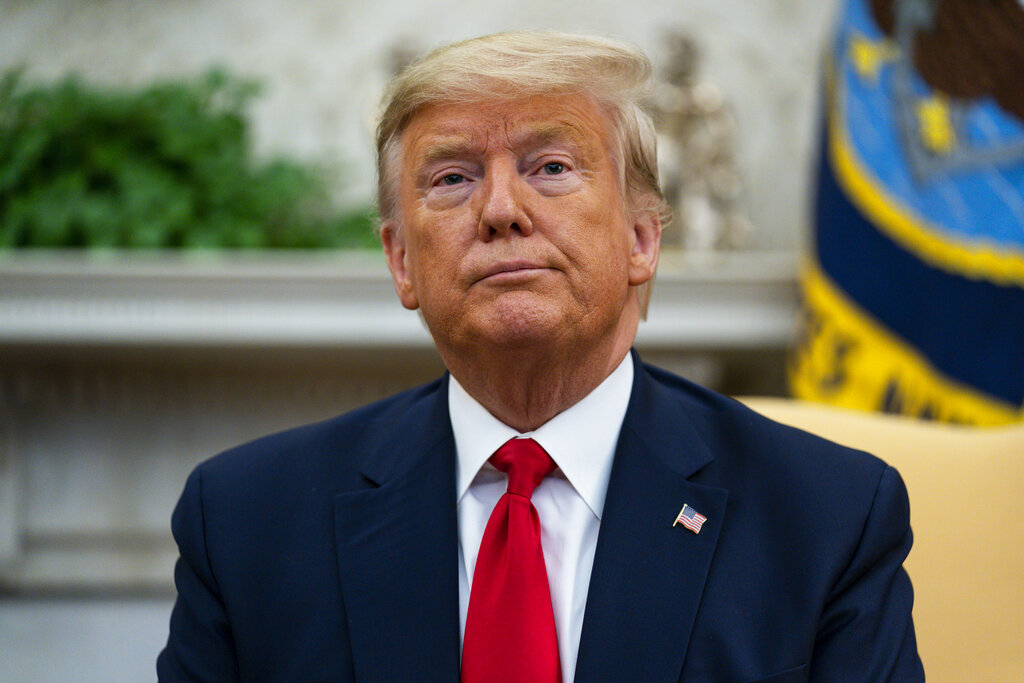
Trump has told confidants in recent days that he felt both vindicated and strengthened by his acquittal in the Senate.
Donald Trump acquittal now likely Wednesday; Senate nixes witnesses
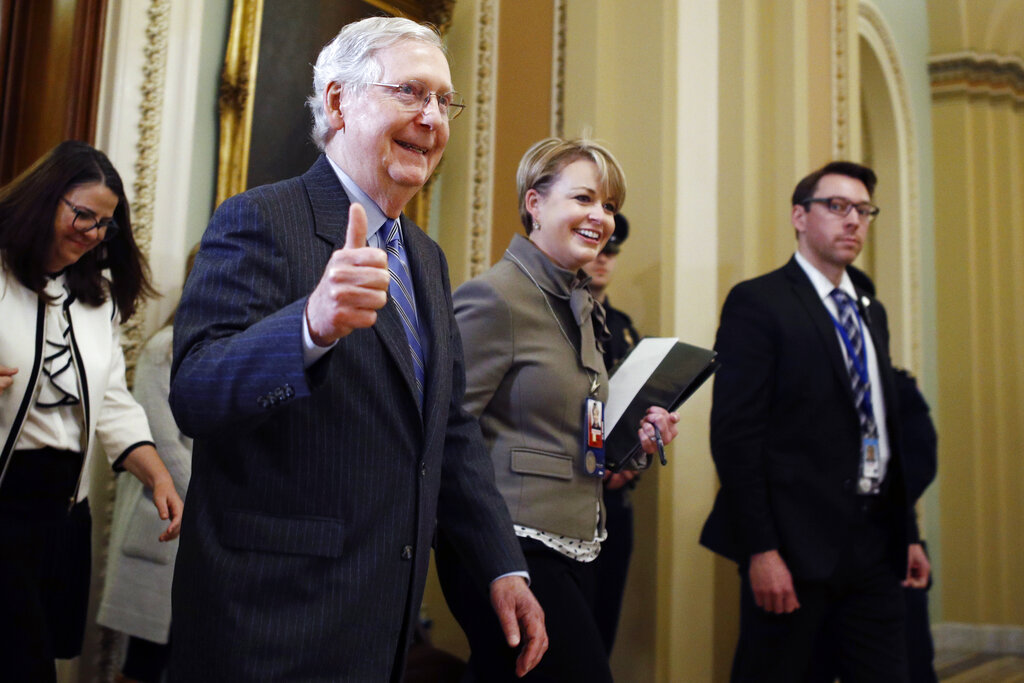
The delay in timing showed the weight of a historic vote bearing down on senators
Donald Trump lawyers argue Democrats just want to overturn election
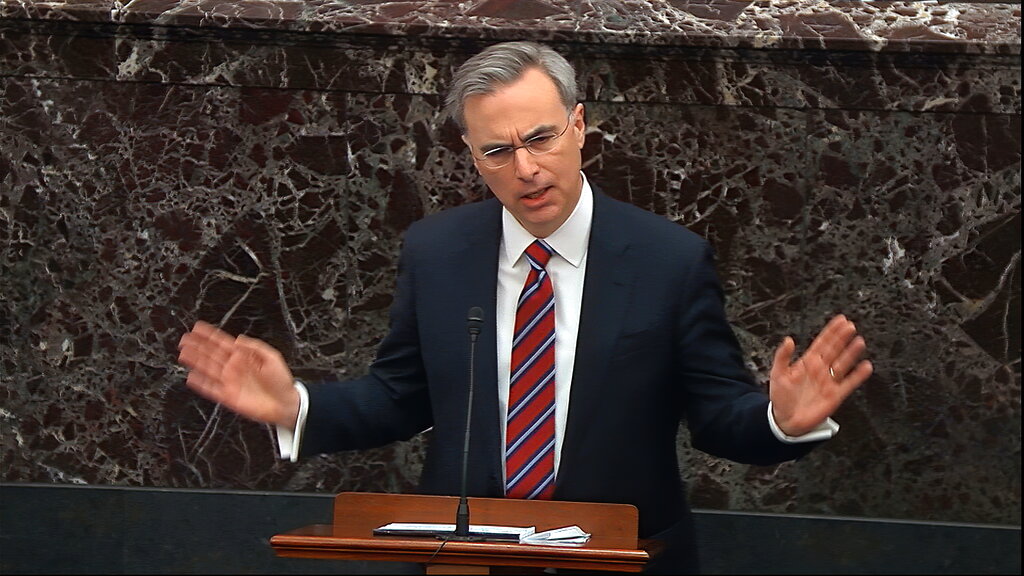
Donald Trump’s defense team took center stage following three days of methodical and passionate arguments from Democrats.
Senate rejects witnesses in impeachment trial rules

“We have a great case,” Donald Trump said of the ongoing trial.
Mitch McConnell backs off, abruptly eases impeachment trial limits
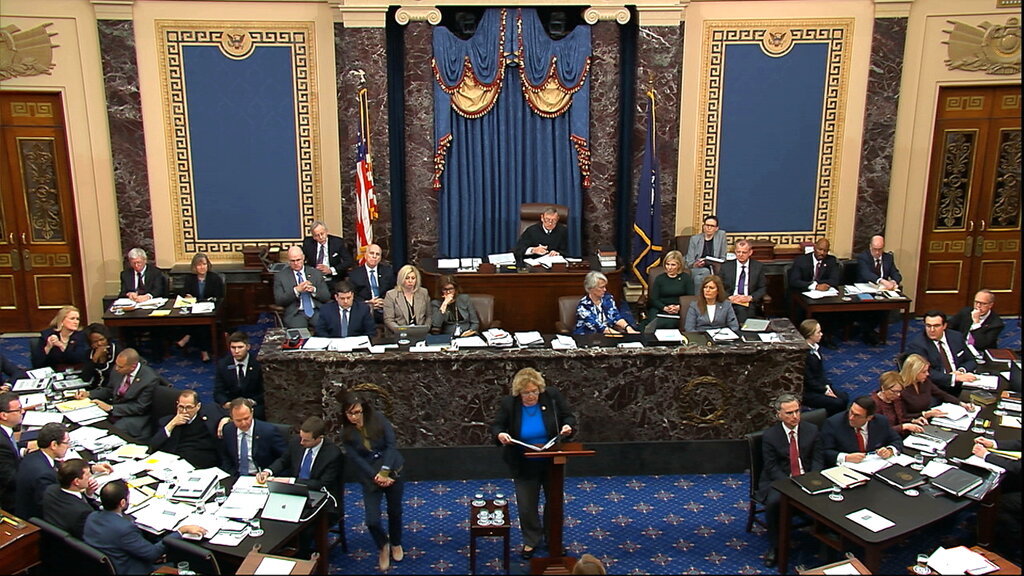
McConnell acted after protests from senators, including fellow Republicans.
Amid Iran and impeachment, Donald Trump’s focus is reelection
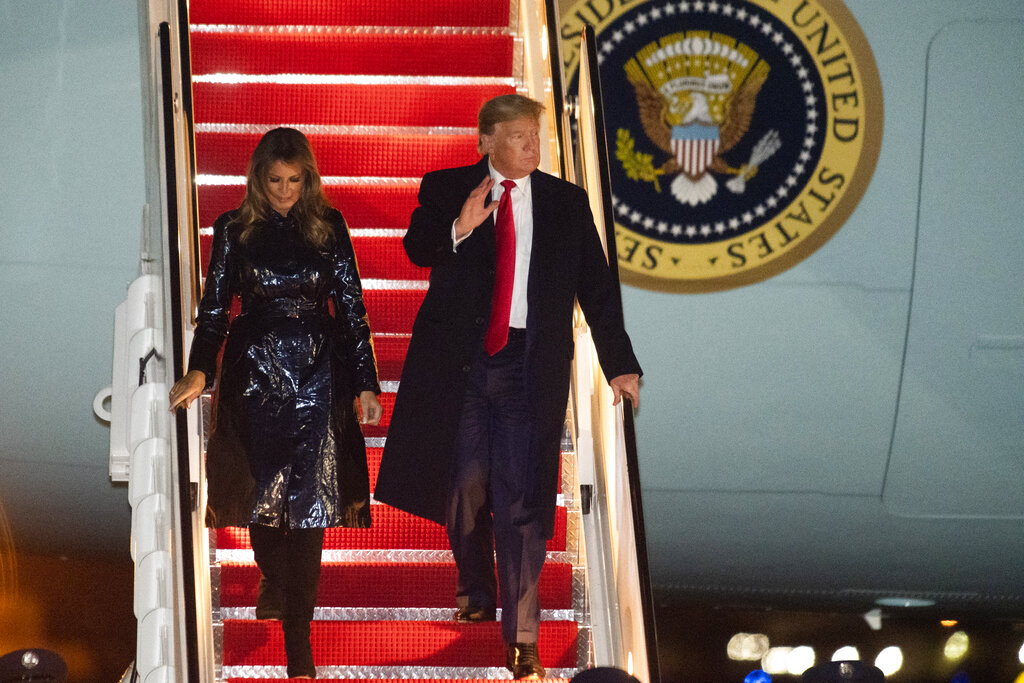
Donald Trump is being attacked on two sides.
Donald Trump impeached by U.S. House on 2 charges
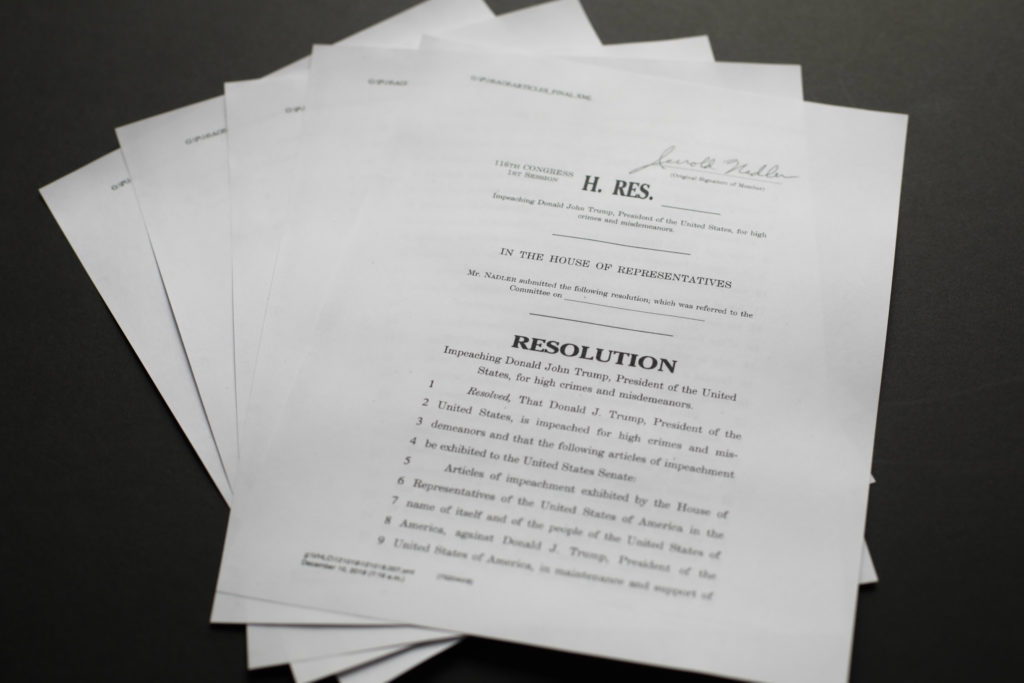
President Donald Trump was impeached by the U.S. House of Representatives Wednesday night, becoming only the third American chief executive to be formally charged under the Constitution’s ultimate remedy for high crimes and misdemeanors. The historic vote split along party lines, much the way it has divided the nation, over a charge that the 45th president abused the power of his office by enlisting a foreign government to investigate a political rival ahead of the 2020 election. The House then approved a second charge, that he obstructed Congress in its investigation. The articles of impeachment, the political equivalent of an indictment, now go to the Senate for trial. If Trump is acquitted by the Republican-led chamber, as expected, he still would have to run for reelection carrying the enduring stain of impeachment on his purposely disruptive presidency. He saw the blame flowing the other direction. He told a political rally in Michigan that “crazy Nancy Pelosi’s House Democrats have branded themselves with an eternal mark of shame.” The votes were 230 for impeachment and 197 against on the first count, 229-198 on the second. Democrats led Wednesday night’s voting, framed in what many said was their duty to protect the Constitution and uphold the nation’s system of checks and balances. Republicans stood by their party’s leader, who has frequently tested the bounds of civic norms. Trump called the whole affair a “witch hunt,” a “hoax” and a “sham,” and sometimes all three. The trial is expected to begin in January in the Senate, where a vote of two-thirds is necessary for conviction. While Democrats had the majority in the House to impeach Trump, Republicans control the Senate and few if any are expected to diverge from plans to acquit the president ahead of early state election-year primary voting. Pelosi, once reluctant to lead Democrats into a partisan impeachment, gaveled both votes closed, risking her majority and speakership to follow the effort to its House conclusion. “Today we are here to defend democracy for the people,” she said earlier during floor debate. Trump, who began Wednesday tweeting his anger at the proceedings, pumped his fist before an evening rally in Battle Creek, Michigan, boasting of “tremendous support” in the Republican Party and saying, “By the way it doesn’t feel like I’m being impeached.” No Republicans voted for impeachment, and Democrats had only slight defections on their side. Voting was conducted manually with ballots, to mark the moment. On the first article, abuse of power, two Democrats, Rep. Jeff Van Drew of New Jersey, who is considering switching parties to become a Republican, and Rep. Collin Peterson of Minnesota voted against impeaching Trump. On the second article, obstruction, those two and freshman Rep. Jared Golden of Maine voted against. Democratic Rep. Tulsi Gabbard of Hawaii, who is running for president, voted “present” on both. What Pelosi called a sad and solemn moment for the country, coming in the first year that Democrats swept control of the House, unfolded in a caustic daylong session that showcased the nation’s divisions — not only along party lines, but also by region, race and culture. The House impeachment resolution laid out in stark terms the two articles of impeachment against Trump stemming from his July phone call when he asked the Ukraine president for a “favor” — to announce it was investigating Democrats ahead of the 2020 election. He also pushed Ukrainian President Volodymyr Zelenskiy to probe unsubstantiated corruption allegations against Joe Biden, the former vice president and 2020 White House contender. At the time, Zelenskiy, a young comedian newly elected to politics, was seeking a coveted White House visit to show backing from the U.S. ally as it confronts a hostile Russia at its border. He was also counting on $391 million in military aid already approved by Congress. The White House delayed the funds, but Trump eventually released the money once Congress intervened. Narrow in scope but broad in its charge, the resolution said the president “betrayed the nation by abusing his high office to enlist a foreign power in corrupting democratic elections,” and then obstructed Congress’ oversight like “no president” in U.S. history. “President Trump, by such conduct, has demonstrated that he will remain a threat to national security and the Constitution if allowed to remain in office,” it said. Republicans argued that Democrats are impeaching Trump because they can’t beat him in 2020. “This vote is about one thing, and one thing only: They hate this president,” said Rep. Chris Stewart, R-Utah. “They want to take away my vote and throw it in the trash.” But Democrats warned the country cannot wait for the next election to decide whether Trump should remain in office because he has shown a pattern of behavior, particularly toward Russia, and will try to corrupt U.S. elections in 2020. “The president and his men plot on,” said Chairman Adam Schiff, Democrat-California, of the Intelligence Committee that led the inquiry. “The danger persists. The risk is real.” The outcome brings the Trump presidency to a milestone moment that has building almost from the time the New York businessman-turned-reality-TV host unexpectedly won the White House in 2016 amid questions about Russian interference in the U.S. election — and the rise of the “resistance.” Democrats drew from history, the founders and their own experiences, as minorities, women and some immigrants to the U.S., seeking to honor their oath of office to uphold the constitution. Rep. Lou Correa, Democrat-California, spoke in Spanish asking God to unite the nation. “In America,” said Rep. Hakeem Jeffries, Democrat-New York, “no one is above the law.” Republicans aired Trump-style grievances about what Arizona Rep. Debbie Lesko called a “rigged” process. “We face this horror because of this map,” said Rep. Clay Higgins, Republican-Alabama, before a poster of red and blue states. “They call this Republican map flyover country, they call us deplorables, they fear our faith, they fear our strength, they fear our unity, they fear our vote, and they fear our president.” The political fallout from the
Democrats lay out case for Wednesday Donald Trump impeachment vote
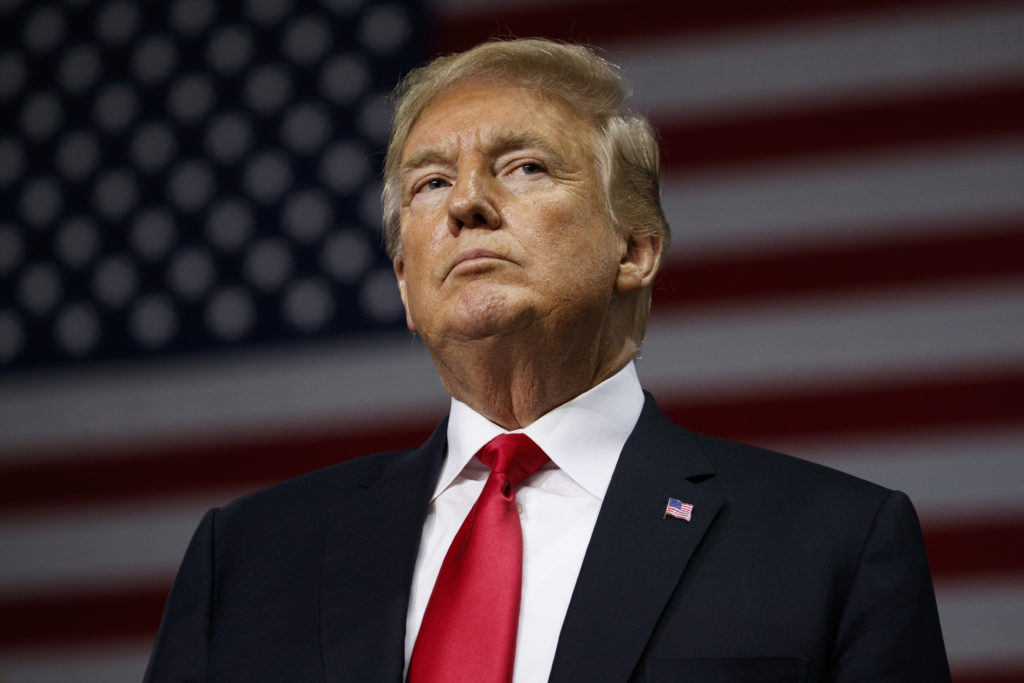
House Democrats laid out their impeachment case against President Donald Trump on Monday, a sweeping report accusing him of betraying the nation and deserving to be ousted, as key lawmakers began to signal where they stand ahead of this week’s landmark votes. What Democrats once hoped would be a bipartisan act, only the third time in U.S. history the House will be voting to impeach a president, is now on track to be a starkly partisan roll call Wednesday. No Republicans are breaking with the president and almost all Democrats are expected to approve the charges against him. A raucous town hall Monday in the Detroit suburbs put on display the nation’s wrenching debate over the unconventional president and the prospect of removing the him from office. Freshman Democratic Rep. Elissa Slotkin was both heckled and celebrated as she announced her support for impeachment. “There’s certainly a lot of controversy about this,” Slotkin told the crowd of 400. “But there just has to be a moment where you use the letter of the law for what they were intended.” Trump faces two articles of impeachment brought by Democrats. They say he abused the power of his office by pressuring Ukraine to investigate Democratic rival Joe Biden and obstructed Congress by aggressively trying to block the House investigation and its oversight duties as part of the nation’s system of checks and balances. The president “betrayed the Nation by abusing his high office to enlist a foreign power in corrupting democratic elections,” says the 650-page report from the House Judiciary Committee. He withheld military aid from the ally as leverage, the report says, and ”Trump, by such conduct, has demonstrated that he will remain a threat to national security and the Constitution if allowed to remain in office.” The report says the president then engaged in an unprecedented attempt to block the investigation and “cover up” his misconduct. “In the history of the Republic, no President has ever ordered the complete defiance of an impeachment inquiry,” it says. Trump, tweeting from the sidelines after instructing the White House not to participate in the House inquiry, insists he has done nothing wrong. He is promoting lawyer Rudy Giuliani’s alternative theory that it was actually Biden and Ukraine that interfered, a conspiracy-laden idea that other most other Republicans are actively avoiding. Sticking to the language he has relied on for months, he tweeted on Monday, “The Impeachment Hoax is the greatest con job in the history of American politics!” As the House prepares for Wednesday’s vote, just a handful of Democrats are expected to break ranks to oppose impeachment as Speaker Nancy Pelosi marches the majority toward a vote she hoped to avoid having Democrats take on their own. One freshman Democrat, Rep. Jeff Van Drew of New Jersey, lost five key staff members Monday after he said he would vote against impeachment and indicated he was switching parties to become a Republican. Another Democrat, Rep. Collin Peterson, a Minnesota centrist, has not decided how he will vote, his spokeswoman said As the House was detailing its case against the nation’s 45th president, attention was turning to the Senate where the top Democrat, Sen. Chuck Schumer of New York, called anew for fresh evidence and testimony from key White House officials for the Senate impeachment trial. “What is President Trump hiding?” Schumer said Monday. Senate Majority Leader Mitch McConnell is hoping to avoid a drawn-out spectacle in his chamber, though Trump, a former reality TV show host, has signaled that is what he prefers as he seeks vindication. Republicans, who hold the majority, are expected to acquit Trump of the charges during a trial starting in January. In a letter to McConnell, Schumer proposed hearing testimony from former national security adviser John Bolton, acting White House chief of staff Mick Mulvaney and two others as part of a detailed offer he made to Republicans as an opening offer for negotiations. Democrats want to hear from Bolton, who once labeled the alternative foreign policy orchestrated by Trump lawyer Giuliani a “drug deal’’ he wanted no part of. Bolton left the White House in September. The Democrats also want to hear from Mulvaney, who has acknowledged the military aid to Ukraine was being held up, as well as two other White House officials who defied House subpoenas to testify. McConnell is facing criticism for saying he’s taking his “cues” from the White House as he ensures Trump there will not be the 67 votes needed in the Senate to convict the president. Democrats complain that he and other Republicans are not operating as impartial jurors. The GOP leader is planning to meet soon with Schumer to discuss the contours of next month’s trial, McConnell’s office said. The report released Monday by the House Judiciary Committee, a historic marker like those produced during impeachment proceedings for Richard Nixon and Bill Clinton, formally lays the groundwork for the vote. It outlines the panel’s findings and includes those from the Intelligence Committee’s months-long investigation that was sparked by a still-anonymous government whistleblower’s complaint about Trump’s July phone call with Ukraine President Volodymyr Zelenskiy. It also includes Republican rebuttals. The House Rules Committee will meet Tuesday in what is expected to be a marathon session to set the parameters for Wednesday’s debate. By Lisa Mascaro and Mary Clare Jalonick Associated Press. Associated Press writers Laurie Kellman and Alan Fram in Washington, David Eggert in Rochester, Mich., and Steve Karnowski in Minnesota contributed to this report. Republished with the Permission of the Associated Press.
Democrats unveil Donald Trump impeachment charges
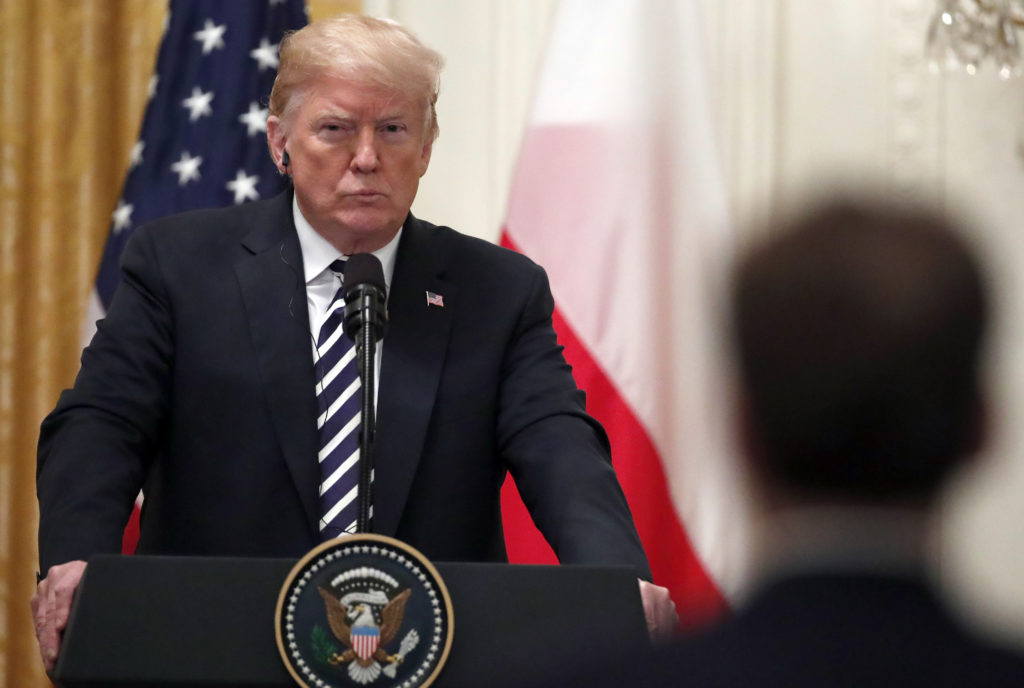
House Democrats announced two articles of impeachment Tuesday against President Donald Trump, declaring he “betrayed the nation” in his actions toward Ukraine as they pushed toward historic proceedings that are certain to help define his presidency and shape the 2020 election. The specific charges aimed at removing the 45th president of the U.S.: abuse of power and obstruction of Congress. Speaker Nancy Pelosi, flanked by the chairmen of the impeachment inquiry committees, said somberly at the U.S. Capitol that they were upholding their solemn oath to defend the Constitution. Trump responded angrily on Twitter: “WITCH HUNT!” Voting is expected in a matter of days by the Judiciary Committee, and by Christmas in the full House. The charges, if approved, would then be sent to the Senate. The Republican majority in the Senate would be unlikely to convict Trump. But first there would be a trial filled with bitter accusations and recriminations just as voters in Iowa and other early presidential primary states begin making their choices. In the formal articles announced Tuesday, the Democrats said Trump enlisted a foreign power in “corrupting” the U.S. election process and endangered national security by asking Ukraine to investigate his political rivals, including Democrat Joe Biden, while withholding U.S. military aid as leverage. That benefited Russia over the U.S. as America’s ally fought Russian aggression, the Democrats said. Trump then obstructed Congress by ordering current and former officials to defy House subpoenas for testimony — some testified anyway — and by blocking access to documents, the charges say. By his conduct, Trump “demonstrated he will remain a threat to national security and the Constitution if allowed to remain in office, ” the nine-page impeachment resolution says. After decrying the Democrats’ announcement, Trump headed to Pennsylvania for a reelection campaign rally. First, he tweeted, “To Impeach a President who has proven through results, including producing perhaps the strongest economy in our country’s history, to have one of the most successful presidencies ever, and most importantly, who has done NOTHING wrong, is sheer Political Madness,.” The outcome, though, appears increasingly set as the House presses ahead toward impeachment as it has only three times in history against U.S. presidents. In outlining the charges, Democrats said they had no choice but to act because Trump has shown a pattern of behavior that, if left unchecked, poses risks to the democratic process ahead of the 2020 election. “Our president holds the ultimate public trust. When he betrays that trust and puts himself before country, he endangers the Constitution; he endangers our democracy; he endangers our national security,” said Rep. Jerrold Nadler, Democrat-New York, the Judiciary chairman, announcing the charges before a portrait of George Washington. “Our next election is at risk. … That is why we must act now.” Nadler said, “No one, not even the president, is above the law.” Chairman Adam Schiff of the Intelligence Committee said, “We stand here today because the president’s abuse of power leaves us with no choice.” Trump’s allies immediately plunged into the fight that will extend into the new year. White House Press Secretary Stephanie Grisham said Democrats are trying to “overthrow” the administration. Campaign manager Brad Parscale said Democrats are “putting on this political theater because they don’t have a viable candidate for 2020 and they know it.” The president’s son, Eric, embraced his father’s penchant for name calling, assailing Pelosi and “her swamp creatures.” In drafting the articles of impeachment, Pelosi faced a legal and political challenge of balancing the views of her majority while hitting the Constitution’s bar of “treason, bribery or other high crimes and misdemeanors.” Some liberal lawmakers wanted more expansive charges encompassing the findings from special counsel Robert Mueller’s probe of Russian interference in the 2016 election. Centrist Democrats preferred to keep the impeachment articles more focused on Trump’s actions toward Ukraine. The final resolution attempted to find common ground by linking the findings in the Ukraine inquiry to the Mueller probe in two lines, without specifically mention the Russia investigation. It said the abuse of power was consistent with “previous invitations of foreign interference in United States elections” while the obstruction charge was consistent with Trump’s previous efforts to undermine “United States government investigations into foreign interference.” As the House chairmen arrived at a closed-door meeting of the chamber’s Democrats after the announcement, they were greeted with applause. Democratic leaders say Trump put his political interests above those of the nation when he asked Ukraine President Volodymyr Zelenskiy in a July phone call to investigate his rivals, including Democrat Joe Biden, and then withheld $400 million in military aid as the U.S. ally faced an aggressive Russia. They say he then obstructed Congress by stonewalling the House investigation. The articles say Trump “used the powers of the presidency in a manner that compromised the national security of the United States and undermined the integrity of the United States democratic process.” The first article, on abuse of power, says Trump “corruptly” solicited Ukraine to investigate his political rivals and required the investigations if the country expected the release of military aide that Congress had already approved as well as a White House meeting with Zelenskiy. The second article, obstruction of Congress, says that Trump has “directed the unprecedented, categorical and indiscriminate defiance of subpoenas” issued by the House, and that such behavior was “offensive to, and subversive of” the Constitution. “In the history of the republic, no president has ever ordered the complete defiance of an impeachment inquiry or sought to obstruct and impede so comprehensively the ability of the House of Representatives to investigate ‘high crimes and misdemeanors,’” the second article reads. Trump insisted in a new tweet that when he asked Ukraine’s president “to do us a favor” with the investigations, “’us’ is a reference to USA, not me!” Democrats, however, say Trump’s meaning could not have been clearer in seeking political dirt on Biden, his possible opponent in the 2020 election. When asked Monday night if she had enough votes to impeach the Republican president, Pelosi said House member
Judiciary hearing sets stage for Donald Trump impeachment charges
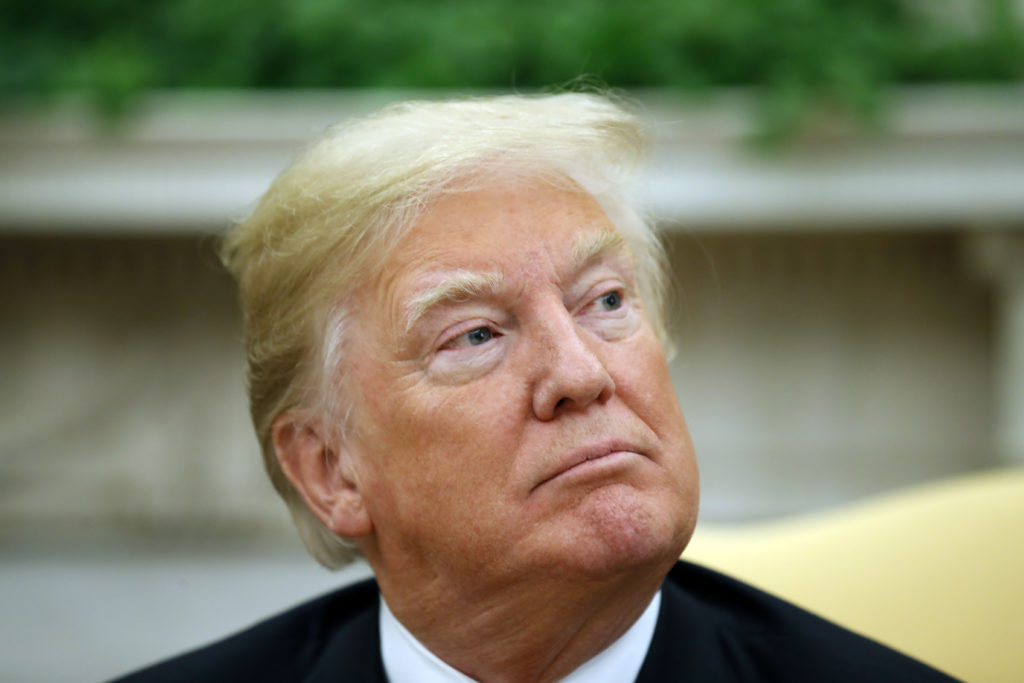
Pushing ahead with articles of impeachment, the House Judiciary Committee convenes Monday to formally receive the investigative findings against President Donald Trump as the White House and its allies launch an aggressive attack on Democrats and the proceedings. Chairman Jerrold Nadler expects the committee to vote soon, possibly this week, on at least two or more charges against the Republican president. Democrats say Trump’s push to have Ukraine investigate rival Joe Biden while at the same time withholding U.S. military aid ran counter to U.S. policy and benefited Russia. It could result in impeachment charges of abuse of power, bribery and obstruction. “The central allegation is that the president put himself above his country several times, that he sought foreign interference in our elections several times, both for 2016 and 2020, that he sought to cover it up,” Nadler said. “All this presents a pattern that poses a real and present danger to the integrity of the next election, which is one reason why we can’t just wait for the next election to settle matters,” he said. In advance of the hearing, Nadler sent a letter to the White House late Sunday officially forwarding the House Intelligence committee’s report, along with additional evidence supporting impeachment. It also invites White House officials to review sensitive materials in a classified setting. The hearing sets off a pivotal week as Democrats march toward a full House vote expected by Christmas. In drafting the articles of impeachment, Speaker Nancy Pelosi is facing a legal and political challenge of balancing the views of her majority while hitting the constitution’s bar of “treason, bribery or other high crimes and misdemeanors.” Trump and his allies acknowledge he likely will be impeached in the Democratic-controlled House, but they also expect acquittal next year in the Senate, where Republicans have the majority. Trump’s team is turning attention elsewhere, including Monday’s release of a long-awaited Justice Department report into the 2016 Russia investigation. “Impeachment Hearing Hoax,” Trump tweeted Sunday. The White House is refusing to participate in the process it calls a sham and the top Republican on the panel, Rep. Doug Collins of Georgia asked to postpone the hearing, criticizing Democrats for moving too swiftly. One legal scholar testified last week it would be the quickest impeachment in modern history. “This is just how desperately they are — desperately focused on impeaching this president,” said Collins who said against Democrats unleashed thousands of pages of documents his side has no time to review before the session. ”This is a show. This is a farce. This is whatever you want to call it. The American people are having their tax dollars wasted on this impeachment of this president.” Trump is heading out for campaign rallies shifting attention away from the House. Over the weekend, Trump was focused on a related matter, the Justice Department Inspector General’s findings into the FBI’s decisions to investigate Russian interference in the 2016 election. The president has long called special counsel Robert Mueller’s Russia probe a “witch hunt,” but the Inspector General’s report is expected to reject the president’s claim that it was illegitimate, according to people familiar with its findings. Trump tweeted Sunday, “I.G. report out tomorrow. That will be the big story!” Democrats say Trump abused his power in the July 25 phone call when he asked Ukrainian President Volodymyr Zelenskiy for a favor in investigating Democrats and engaged in bribery by withholding nearly $400 million in military aide that Ukraine depends on to counter Russian aggression. Trump and his aides have made clear that they now see his impeachment in the House as inevitable and have shifted their focus. A vote to convict requires a two-thirds vote of the Senate, where Republicans hold 53 of 100 seats. It is unlikely that any Republican senators would cross party lines and vote to remove Trump from office. As Democrats draft the articles, Pelosi’s challenge will be to go broad enough to appease her liberal flank, which prefers a more robust accounting of Trump’s actions reaching back to Mueller’s findings, while keeping the charges more tailored to Ukraine as centrist lawmakers prefer. Democratic leaders will meet later Monday evening. Rep. Adam Schiff, Democrats-California, the chairman of the Intelligence Committee, said Democrats should approach the question of what to include in the articles the way a prosecutor bringing forward “‘the strongest and most overwhelming evidence and not try to charge everything, even though you could charge other things.” Schiff said, “I think we should focus on those issues that provide the greatest threat to the country. And the president is engaged in a course of conduct that threatens the integrity of the next election, threatens our national security.” Monday’s hearing is to receive the Intelligence panel’s report on the inquiry, with lawyers from both parties testifying in what is expected to be a day long session that will lay the groundwork for the impeachment charges. Nadler, in two television interviews, declined to say ultimately how many articles of impeachment Democrats will present but said they will involve “certainly abuse of power” and likely “obstruction of Congress.” He said final decisions will come after Monday’s hearing following discussions with House leadership and the Democratic caucus. Nadler pointed to a “pattern” of conduct by Trump in seeking foreign interference in elections but would not commit to including the evidence of obstruction of justice in special counsel Robert Mueller’s Russia investigation as part of the articles of impeachment. In his report, Mueller said he could not determine that Trump’s campaign conspired or coordinated with Russia in the 2016 election. But Mueller said he could not exonerate Trump of obstructing justice in the probe and left it for Congress to determine. House Republican leader Kevin McCarthy criticized Democrats for their timeline, which he said was unfairly aimed at preventing the nation’s voters from making their own choices in the 2020 election. “If they do not impeach him, they cannot beat him at the polls,” McCarthy, Republican-California. Trump said over the weekend that his personal attorney Rudy Giuliani wants to take the information gathered from Giuliani’s investigations and


